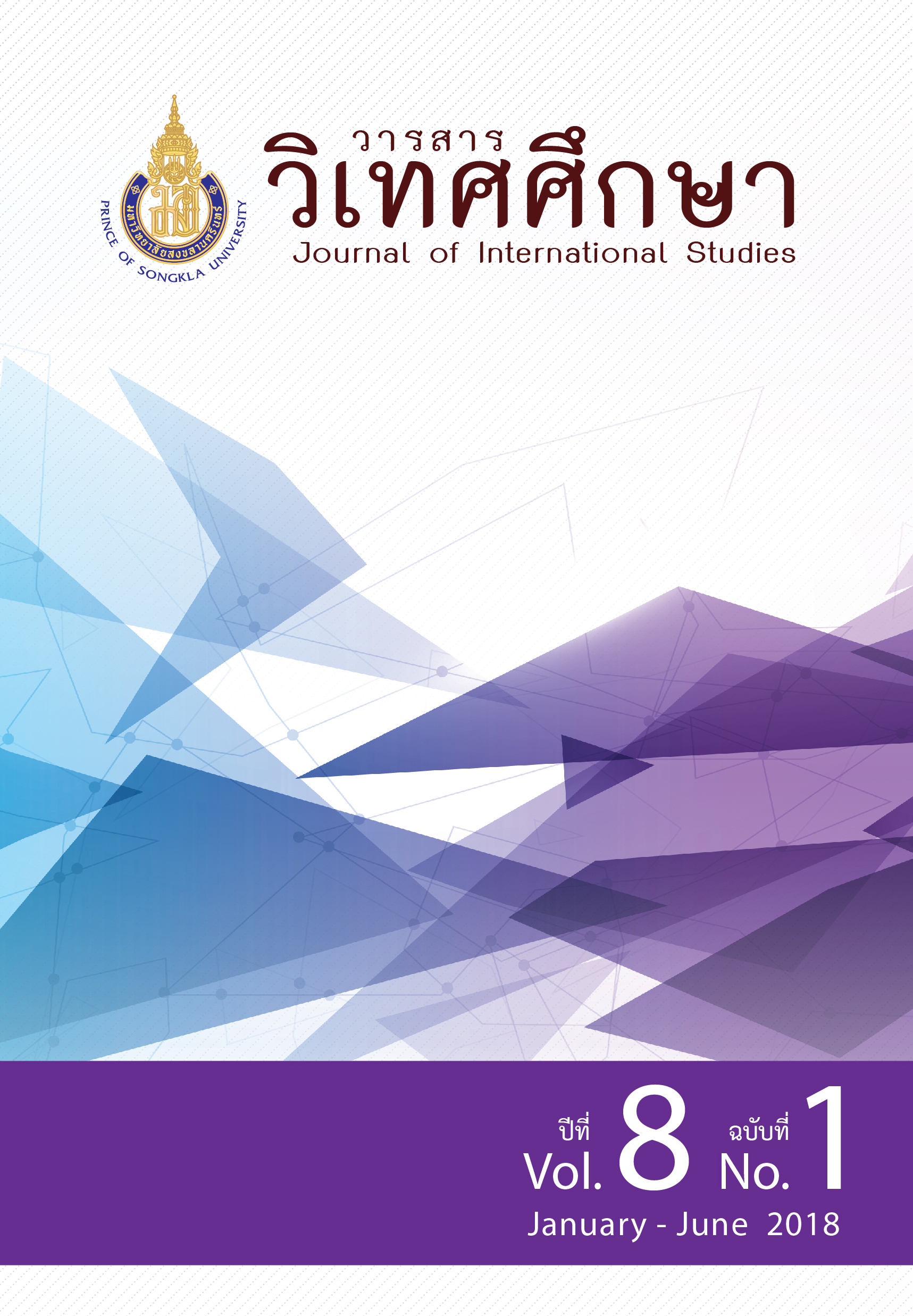Generation Y’s Work Values, Work-life Balance and Employee Commitment: A Case Study of Hotel Employees in Phuket
Main Article Content
Abstract
The objectives of this study were (1) to assess the work values, work-life balance, and employee commitment of Generation Y hotel employees in Phuket: and (2) to examine the relationship between work values, work-life balance factors, and Generation Y employee commitment. A questionnaire was applied for the collection ofdata. Generation Y hotel employees in 3-star to 5-star hotels in Phuket were the target. Five hundred and twenty questionnaires were distributed, and 406 were returned and usable.
The results showed that Generation Y hotel employees had relatively high work values and moderately high level of work-life balance. Generation Y hotel employees also have high commitment to their current employers. There was a positive relationship between work values (work centrality, non-compliance, and recognition), work-life balance factors (life orientation, enough time off work, workplace support, and maintaining work and career), and employee commitment. The results of this study will be useful for hotel managers to develop strategies to attract and retain Generation Y employees in Phuket.
Article Details
Statements and opinions expressed in articles herein are those of the authors and do not necessarily reflect the position of the editors or publisher.
Article, information, text, image, etc. which are published in Journal of International Studies, belong to Journal of International Studies. If anybody or any organization would like to use part or whole of them, they must receive written permission from Journal of International Studies before usage.
References
Bingham, J., Mitchell, B., Bishop, D. and Allen, N. (2013). Working for a higher purpose: A theoretical framework for commitment to organization-sponsored causes. Human Resource Management Review, 23(2), pp.174-189.
Brown, E., Thomas, N. and Bosselman, R. (2015). Are they leaving or staying: A qualitative analysis of turnover issues for Generation Y hospitality employees with a hospitality education. International Journal of Hospitality Management, 46, pp.130-137.
Cahill, K., McNamara, T., Pitt-Catsouphes, M. and Valcour, M. (2015). Linking shifts in the national economy with changes in job satisfaction, employee engagement and work–life balance. Journal of Behavioral and Experimental Economics, 56, pp.40-54.
Chen, P. and Choi, Y. (2008). Generational differences in work values: a study of hospitality management. International Journal of Contemporary Hospitality Management, 20(6), pp.595-615.
Doherty, L. (2004). Work‐life balance initiatives: implications for women. Employee Relations, 26(4), pp.433-452.
Elizur, D. (1994). Gender and Work Values: A Comparative Analysis. The Journal of Social Psychology, 134(2), pp.201-212.
Gin Choi, Y., Kwon, J. and Kim, W. (2013). Effects of attitudes vs experience of workplace fun on employee behaviors. International Journal of Contemporary Hospitality Management, 25(3), pp.410-427.
Gursoy, D., Chi, C. and Karadag, E. (2013). Generational differences in work values and attitudes among frontline and service contact employees. International Journal of Hospitality Management, 32, pp.40-48.
Gursoy, D., Maier, T. and Chi, C. (2008). Generational differences: An examination of work values and generational gaps in the hospitality workforce. International Journal of Hospitality Management, 27(3), pp.448-458.
Hanaysha, J. (2016). Examining the Effects of Employee Empowerment, Teamwork, and Employee Training on Organizational Commitment. Procedia - Social and Behavioral Sciences, 229, 298–306.
Jung, H. and Yoon, H. (2016). What does work mean to hospitality employees? The effects of meaningful work on employees’ organizational commitment: The mediating role of job engagement. International Journal of Hospitality Management, 53, pp.59-68.
Kalleberg, A. (1977). Work Values and Job Rewards: A Theory of Job Satisfaction. American Sociological Review, 42(1), p.124.
Kazlauskaite, R., Buciuniene, I. and Turauskas, L. (2006). Building employee commitment in the hospitality industry. Baltic Journal of Management, 1(3), pp.300-314.
National Statistical Office. (2014). สำนักงานสถิติแห่งชาติ. Retrieved July 8,2016 from http://www.nso.go.th/sites/2014 .
Richardson, S. and Thomas, N. (2012). Utilising Generation Y: United States Hospitality and Tourism Students' Perceptions of Careers in the Industry. Journal of Hospitality and Tourism Management, 19(1), pp.102-114.
Stewart, J., Oliver, E., Cravens, K. and Oishi, S. (2017). Managing millennials: Embracing generational differences. Business Horizons, 60(1), pp.45-54.
TAT, (2017). สรุปสถานการณ์นักท่องเที่ยวชาวต่างชาติ. Retrieved June 9,2017 from http://www.tourism.go.th/view/1/สรุปสถานการณ์ นักท่องเที่ยวชาวต่างชาติTH-TH.
Turner Parish, J., Cadwallader, S. and Busch, P. (2008). Want to, need to, ought to: employee commitment to organizational change. Journal of Organizational Change Management, 21(1), pp.32-52.
White, C. (2006). Towards an understanding of the relationship between work values and cultural orientations. International Journal of Hospitality Management, 25(4), pp.699-715.
Wollack, S., Goodale, J., Wijting, J. and Smith, P. (1971). Development of the survey of work values. Journal of Applied Psychology, 55(4), pp.331-338.
Wong, S. and Ko, A. (2009). Exploratory study of understanding hotel employees’ perception on work–life balance issues. International Journal of Hospitality Management, 28(2), pp.195-203.


